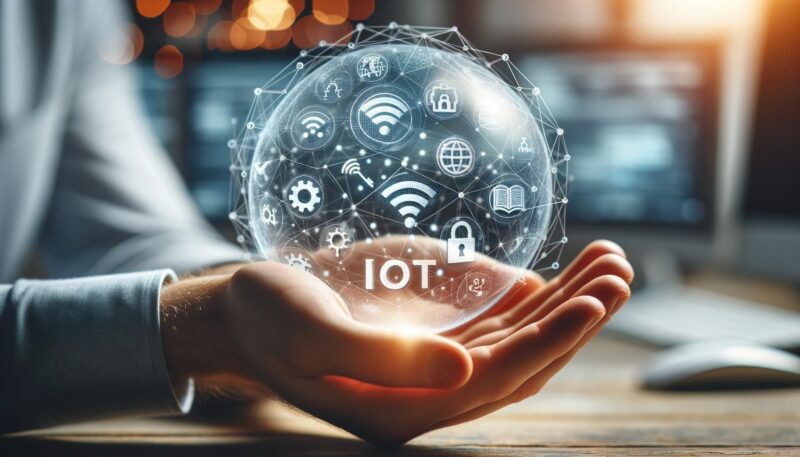Information and Communication Technology (ICT) has revolutionized the way we communicate, work, and even think. It has become an integral part of our daily lives, influencing various sectors from education to business.
This article offers an in-depth exploration of the significance, breadth, and relevance of ICT, supported by credible references.
Meaning
The digital age has brought about a significant shift in how we perceive and utilize technology. At the heart of this transformation lies Information and Communication Technology.
According to the article by Tech Target, Information and Communication Technology can be defined as an amalgamation of technologies used to process and communicate information. It encompasses a wide range of tools and applications that enable users to create, store, share, and manipulate information.
- Electronic Medium: ICT operates primarily through electronic mediums. This includes devices like smartphones, computers, and tablets, as well as platforms like the internet and wireless networks. These tools have made information exchange faster, more efficient, and accessible to a broader audience.
- Diverse Applications: From sending a simple text message to complex data analysis, ICT plays a pivotal role. It’s not just limited to communication; it also aids in problem-solving, decision-making, and creating new avenues for innovation.
The Scope

The realm of ICT is vast, encompassing various domains and influencing numerous industries. Its impact is profound, reshaping traditional practices and introducing innovative solutions.
As per the report of World Economic Forum (WEF), the scope of ICT is expansive, touching upon areas like communication technology, data management, software development, and much more.
- Convergence of Technologies: One of the most significant aspects of ICT is the convergence of different technologies. This means that devices and platforms, which used to operate independently, are now interconnected, offering integrated solutions. For instance, smartphones today are not just communication tools; they are also cameras, music players, and mini-computers.
- Academic and Professional Pursuits: ICT has emerged as a prominent academic field, with institutions worldwide offering specialized courses. Professionally, it has created numerous job opportunities, from software developers to network analysts.
Information and Communication Technology as a Field of Study

The academic world has recognized the potential and significance of ICT, integrating it into curriculums and promoting research in the field.
According to the United Nations Educational, Scientific and Cultural Organization (UNESCO), the inclusion of ICT in education is not just a trend but a necessity. It equips students with the skills required to navigate the digital world and fosters innovation.
- Interdisciplinary Nature: ICT is not limited to tech enthusiasts or computer scientists. Its interdisciplinary nature means that it intersects with various fields, from arts to sciences. This holistic approach ensures that students from diverse backgrounds can leverage ICT for their benefit.
- Future of Learning: With the rise of e-learning platforms and digital resources, has transformed the traditional classroom setup. It offers flexible learning solutions, making education more accessible and inclusive.
Importance of Information and Communication Technology
The significance of ICT extends beyond convenience. It has tangible benefits that have a direct impact on society, economy, and personal development.
According to the World Bank, ICT acts as a catalyst for development, driving economic growth, enhancing education, and promoting transparency in governance.
- Economic Development: It has opened up new avenues for business, from e-commerce platforms to digital marketing. It has also facilitated global trade, connecting sellers and buyers from different parts of the world.
- Education and Innovation: As mentioned earlier, ICT has transformed education, making it more interactive and learner-centric. Moreover, it fosters innovation, enabling individuals to create solutions for local and global challenges.
- Social Impact: On a societal level, ICT has bridged gaps, bringing communities closer. It has given a voice to the marginalized, ensuring that everyone has a platform to express and communicate.
FAQ
What is the difference between IT and ICT?
IT (Information Technology) primarily focuses on computers, software, and networks for the processing and distribution of data. ICT (Information and Communication Technology) encompasses IT and also includes any communication device or application, such as radio, television, cellular phones, and satellite systems.
How does ICT impact the environment?
While ICT has led to digital solutions that reduce paper usage and travel (thanks to virtual meetings), it also has environmental concerns. The production and disposal of electronic devices contribute to e-waste. However, many companies are now focusing on sustainable and green ICT solutions.
Is ICT limited to digital technology?
No, ICT includes both digital and analog technologies. While digital technology like computers and smartphones is more prevalent today, analog technologies like radios and televisions are also part of ICT.
How does ICT promote inclusivity?
Provides platforms and tools that cater to people with disabilities, ensuring they have equal access to information and communication. Features like screen readers, voice recognition, and subtitles are examples.
What are the security concerns related to ICT?
As we become more interconnected, the risk of cyber threats increases. Issues like data breaches, phishing attacks, and malware are common concerns in the ICT realm.
Final Words
In conclusion, Information and Communication Technology is not just a tool; it’s a movement that is shaping the future. Its multifaceted nature ensures that its impact is holistic, touching upon every aspect of human life.
As we progress further, the significance of Information and Communication Technology (ICT) will continue to grow, leading us toward a more interconnected and knowledgeable world. For more information on the topic of UAC Virtualization, please refer to the following post.
